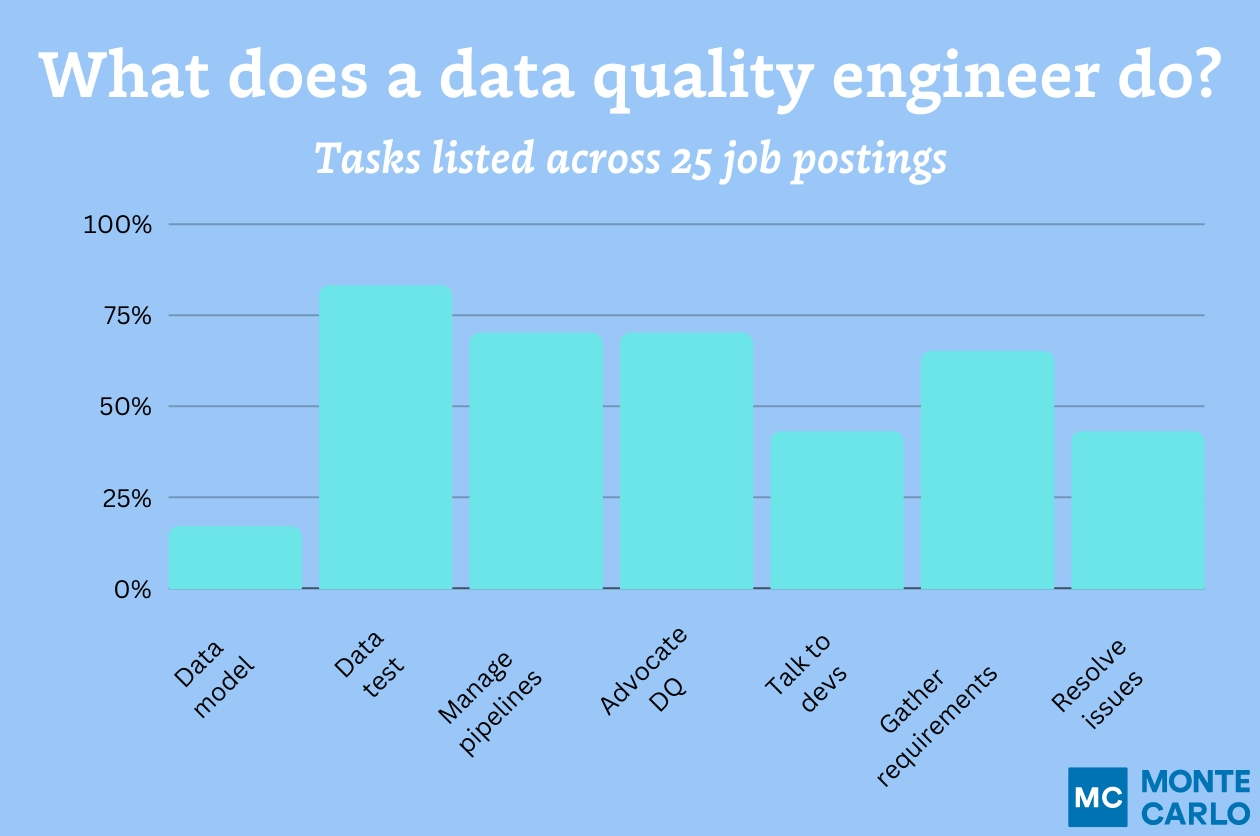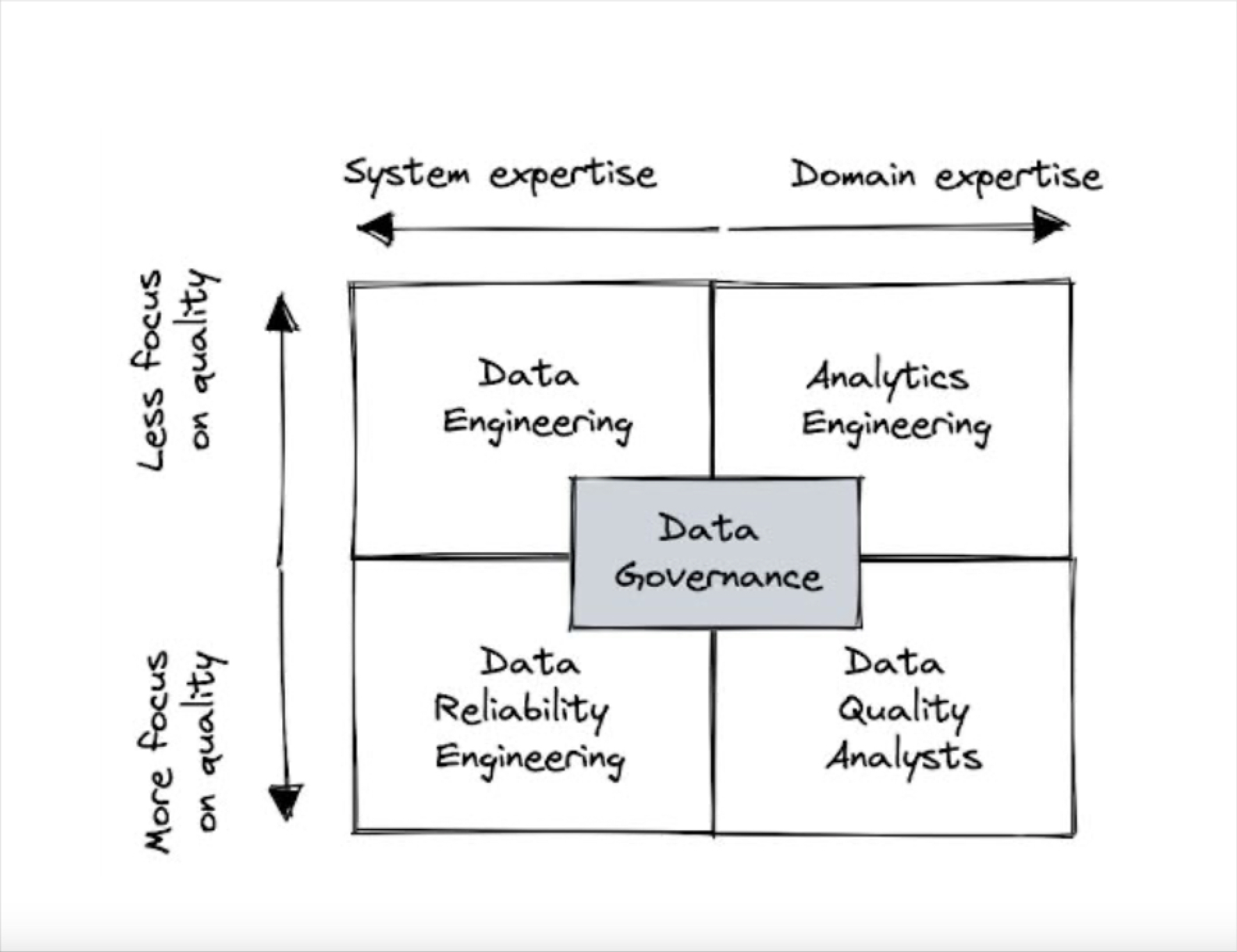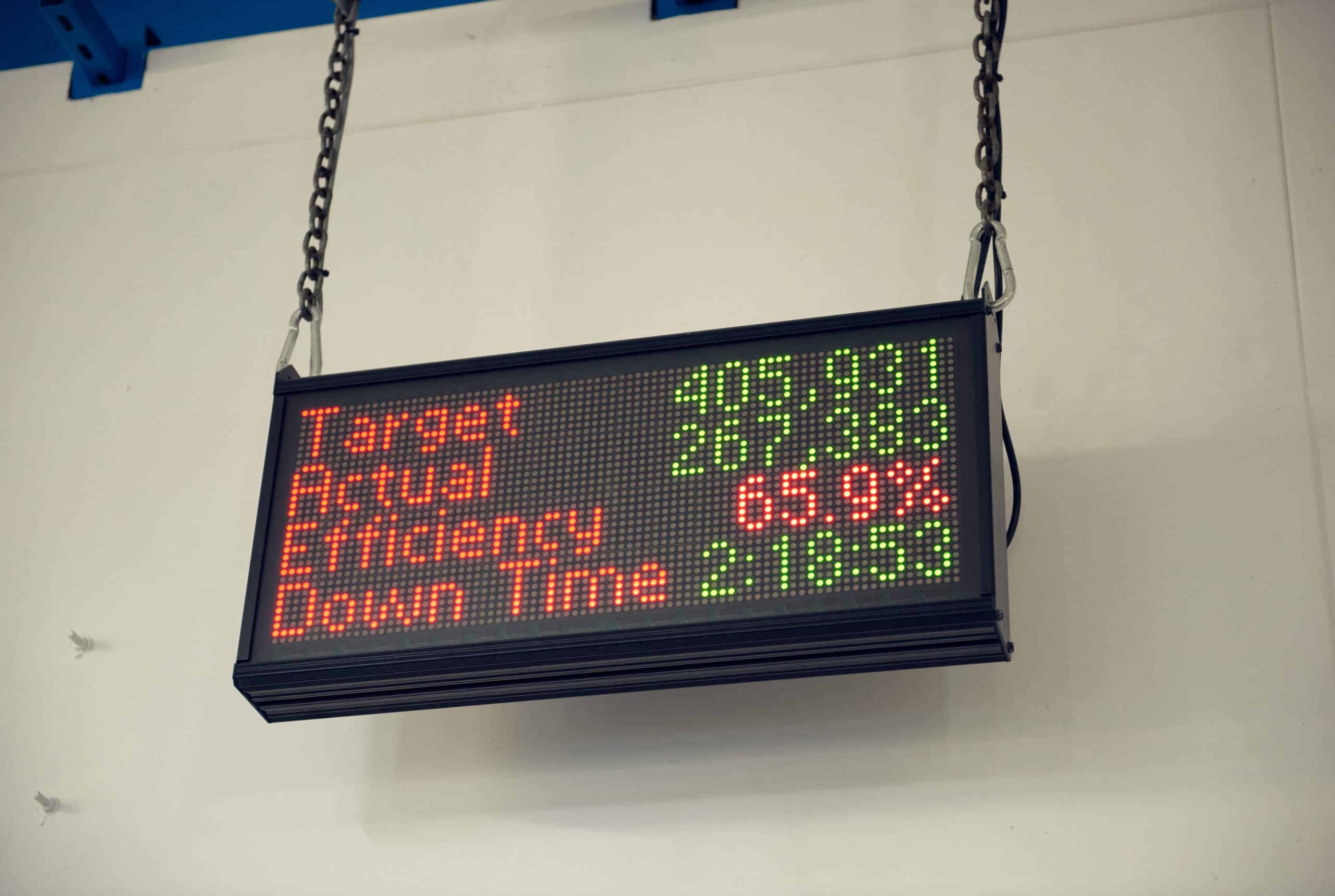The Role of an AI Data Quality Analyst

It seems like everyone is on the AI hype train. It’s moving full speed ahead, with no signs of stopping anytime soon. So, what’s the best way to beat the hype?
Join it.
One of the most underrated – but most important – roles emerging from the AI craze is AI Data Quality Analyst. As the use of AI becomes more ubiquitous across data organizations and beyond, data quality rises in importance right alongside it.
After all, you can’t have high-quality AI models without high-quality data feeding them. That’s like trying to cook something using only spoiled ingredients. The end result is going to be spoiled, too (and probably pretty gross).
Even though the role of AI Data Quality Analyst is relatively new, demand is growing rapidly. For most data and analytics organizations, hiring an AI Data Quality Analyst is an essential step toward more reliable, scalable AI development.
Let’s dive into the responsibilities, skills, challenges, and potential career paths for an AI Data Quality Analyst today.
Table of Contents
What Does an AI Data Quality Analyst Do?
An AI Data Quality Analyst is primarily responsible for ensuring clean, structured, and accurate data for AI models.
While a traditional Data Quality Analyst works to ensure that data supporting all pipelines across a data organization are reliable and accurate, an AI Data Quality Analyst is primarily focused on data that serves AI and GenAI models.
The role is usually on a Data Governance, Analytics Engineering, Data Engineering, or Data Science team, depending on how the data organization is structured. The AI Data Quality Analyst works alongside data scientists and machine learning engineers to maintain data integrity throughout the lifecycle and ensure the data they’re leveraging to build and test the AI models is accurate, reliable, and trustworthy.
Essential Skills for an AI Data Quality Analyst
There are several important skills an AI Data Quality Analyst needs to know in order to successfully ensure and maintain accurate, reliable AI models.
An AI Data Quality Analyst should be comfortable with:
- Data Management: Proficiency in handling large datasets.
- Data Cleaning and Preprocessing: Techniques to identify and remove errors.
- Machine Learning Basics: Understanding how data impacts model training.
- Programming Skills: Python, R, and SQL.
- Attention to Detail: Critical for identifying data anomalies.
- Tools: Familiarity with data validation tools, data wrangling tools like Pandas, and platforms such as AWS, Google Cloud, or Azure.
- Data observability tools: Monte Carlo
- ETL Tools: Extract, Transform, Load (e.g., Informatica, Talend).
- Data Validation Tools: Great Expectations, Apache Griffin.
- Data Wrangling Tools: OpenRefine, Pandas.
- Cloud Platforms: AWS, Google Cloud, Microsoft Azure.
- Collaboration Tools: GitHub, JIRA
Of course, additional data engineering and data analytics skills are useful in this role as well. The deeper understanding you have of end-to-end data pipeline management, the more success you’ll have as an AI Data Quality Engineer.
In addition, a keen sense of AI model trends can also serve as a leg up on the path toward becoming an AI Data Quality Analyst. As models evolve and GenAI continues to scale, an understanding of RAG architectures, LLM development, fine-tuning, prompt engineering, and more will be useful skills.
Challenges Faced by AI Data Quality Analysts
While there are many similarities between the traditional Data Quality Analysts and AI Data Quality Analysts, the latter typically deal with a few specific challenges.
Handling unstructured data
Many AI models are fed large amounts of unstructured data, making data quality management complex. AI Data Quality Analysts must be able to monitor unstructured data for anomalies before it’s turned into structured data within an LLM.
Managing massive datasets from various sources
An organization might leverage a combination of publicly available, proprietary, and third-party data when building a GenAI model. An AI Data Quality Analyst must be able to put effective data quality and incident management processes in place to catch data errors at the source, from the moment of ingestion.
Detecting biases in AI data
Biased data results in biased output – and then the cycle continues. An AI Data Quality Analyst must have a keen understanding of where data is coming from and why it’s being used for certain AI models to gauge and prevent potential biases.
Ensuring compliance with data privacy regulations
Data privacy, compliance, and governance is hugely important when it comes to AI development. An AI Data Quality Analyst needs to be alerted right away if PII and other sensitive, regulated data has made its way into AI pipelines.
How to Become an AI Data Quality Analyst
Has all of this information sparked your interest in becoming an AI Data Quality Analyst? Great! Here are the qualification we recommend having before you start applying for open positions:
- Educational background: A degree in Computer Science, Data Science, Analytics, or a related field
- Certifications: Consider investing in data quality certifications, such as Certified Data Management Professional (CDMP
- Build a portfolio: Keep track of projects you’ve completed that showcase data cleaning, data integrity, and data quality work, as well as examples of data process management
- Internships and work experience: Related technical internships and work experience are always helpful in establishing your professional credentials for a role.
Career Path and Growth Opportunities for AI Data Quality Analysts
If you’re already working in the data space, but you’re looking to pivot into an AI Data Quality Analyst role, there are a few ways to set off down the right career path to get you there.
- Start with right entry-level positions: Get your foot in the door with roles like Data Analyst or Quality Analyst. While these may be junior positions, they’ll give you the skills you need to become an AI Data Quality Analyst.
- Transition to advanced roles: Once you’ve learned all the skills you can in one of the entry roles, you’ll be ready to move up to a more advanced role that specializes in AI development and growth. This might be a Machine Learning Engineering role or an AI Researcher.
- Look for opportunities in various sectors: The beauty of working in data is that it’s everywhere; these days, every single organization is a data organization. So, don’t limit yourself to industries you’ve worked in before. Broaden your horizons across finance, healthcare, eCommerce – generally speaking, most industries will be looking to focus on AI development.
- Salary expectations and job outlook: Careers in AI present a whole new wave of opportunities, and they’re only going to keep growing. Now is a great time to hone your skills and become an expert (before everyone else does!). Be realistic with your salary expectations, and utilize the average salaries of similar roles in your area (Data Analyst, Machine Learning Engineer, etc) to gauge what might make sense.
Data Observability: The Most Essential Tool for an AI Data Quality Analyst
While there are many skills to learn to become a successful AI Data Quality Analyst, data observability is likely the most important. By knowing how to use Monte Carlo, you’re able to automatically monitor data to detect bad data issues before they impact your AI pipelines.
An effective AI Data Quality Analyst leverages data observability to be alerted to anomalies in AI pipelines and sets up effective incident management workflows to resolve them fast. Want to learn more about how Monte Carlo can give you a leg up in AI data quality management? Speak to our team.
Our promise: we will show you the product.
Frequently Asked Questions
What is an AI data quality analyst?
An AI data quality analyst is responsible for ensuring that the data used for AI models is clean, structured, and accurate. They focus on maintaining the quality of data feeding into AI and GenAI models.
What is the difference between a traditional and AI data quality analyst?
A traditional data quality analyst ensures data across all pipelines is reliable, while an AI data quality analyst focuses specifically on the data serving AI and GenAI models. They handle AI-specific challenges such as managing unstructured data and preventing biases.
What skills are required to become an AI data quality analyst?
Required skills include data management, data cleaning and preprocessing, machine learning basics, programming skills (Python, R, SQL), attention to detail, and experience with data validation, wrangling, and cloud platforms. Knowledge of AI models and tools like Monte Carlo, ETL tools, and collaboration platforms like GitHub is also important.
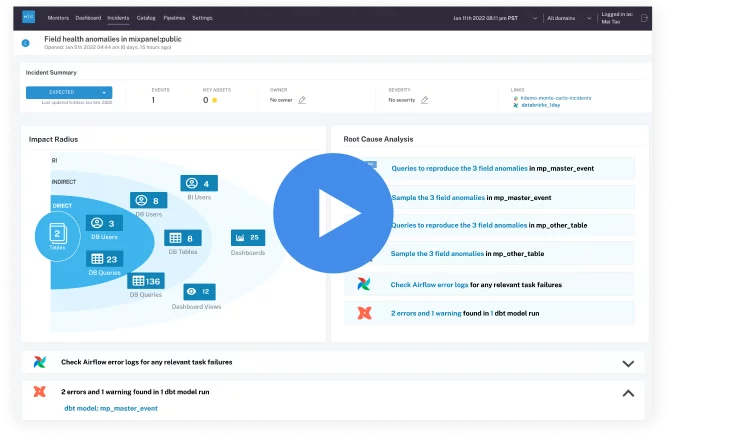 Product demo.
Product demo. 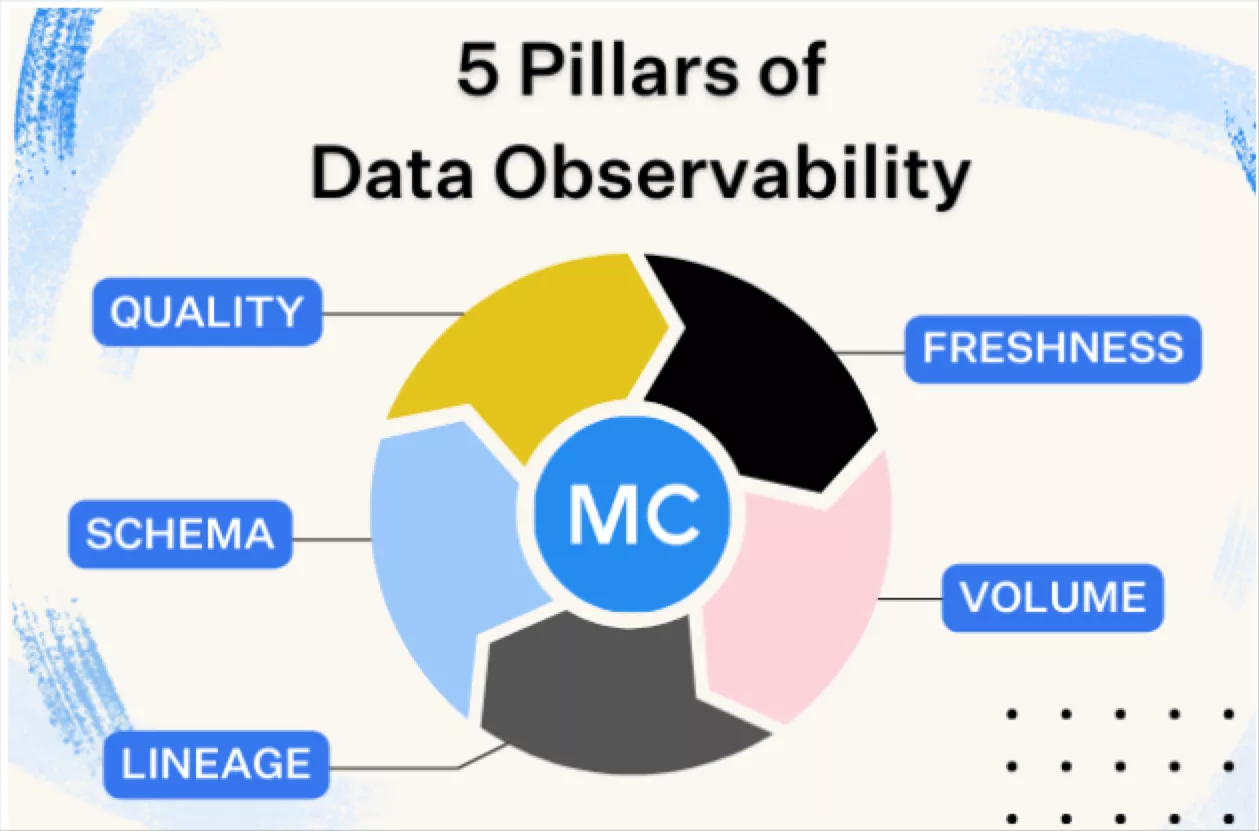 What is data observability?
What is data observability? 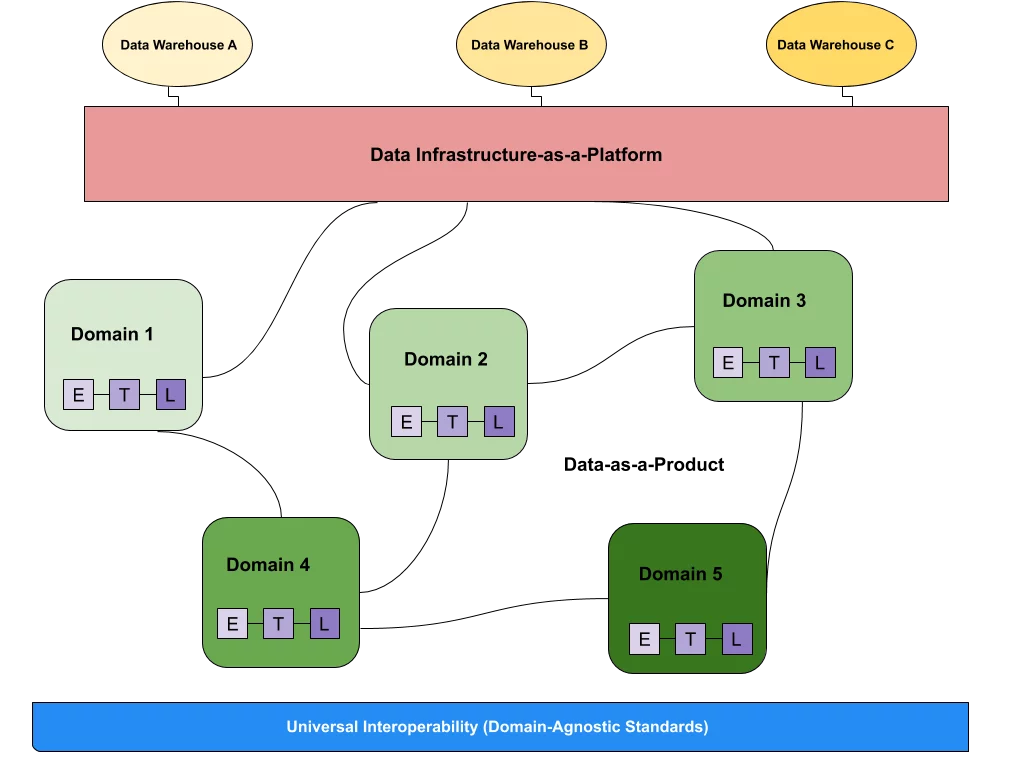 What is a data mesh--and how not to mesh it up
What is a data mesh--and how not to mesh it up 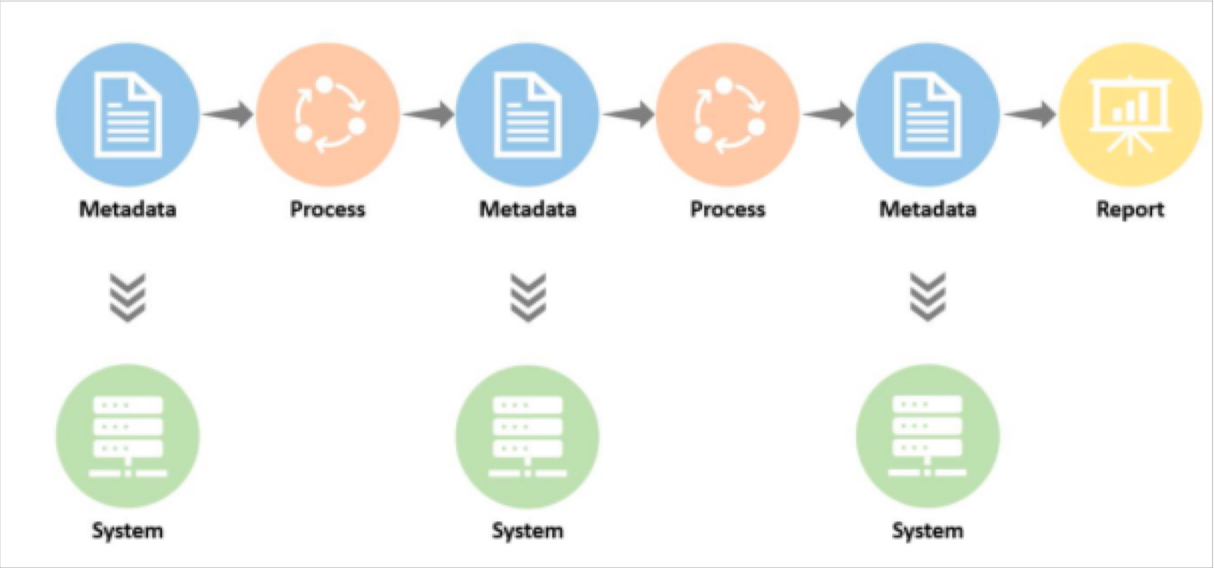 The ULTIMATE Guide To Data Lineage
The ULTIMATE Guide To Data Lineage 


